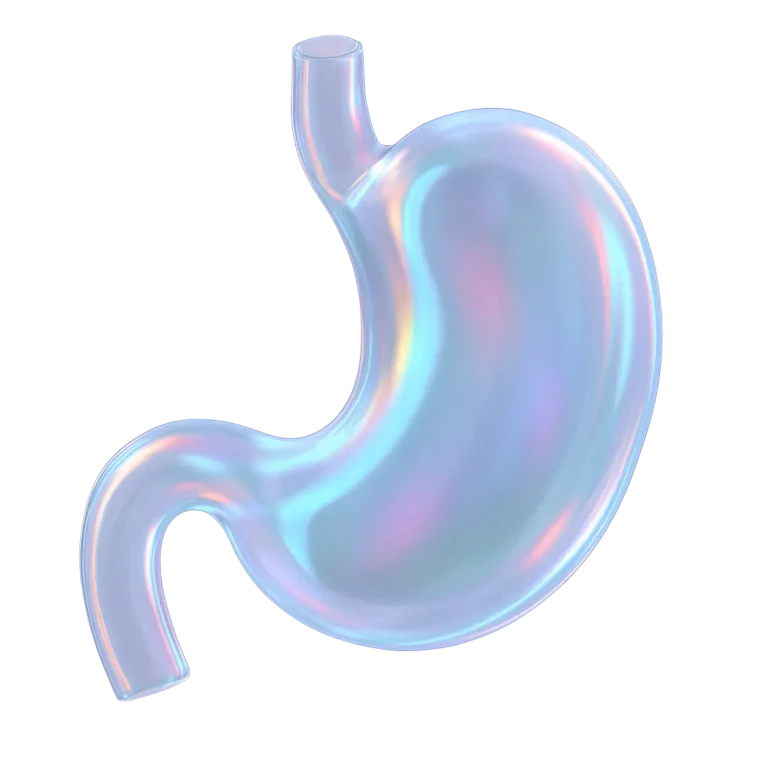One-time purchase
One time purchase, no commitment
OR
3-Month start plan (recommended)
Monthly delivery
Includes 3 monthly deliveries · Cancel after month 3
Science-backed habits, nutrients, and tools to nourish your gut, improve digestion, and support whole-body well-being.
Not sure where to start?

| Tip | Why it works |
|---|---|
| Move with purpose every day | Regular activity supports gut motility, microbial diversity, and reduces gut-related inflammation. |
| Eat polyphenol-rich plants | Polyphenols feed beneficial gut bacteria and help reduce inflammation in the digestive tract. |
| Strength train 2–3x/week | Resistance training helps regulate metabolism and reduces inflammatory markers that affect gut health. |
| Get deep, regular sleep | Sleep regulates gut barrier function and supports microbial balance via circadian rhythm alignment |
| Supplement with prebiotics, probiotics or polyphenols | Helps maintain gut diversity, reduce inflammation, and support digestion. |
| Reduce chronic stress | High stress alters gut bacteria and weakens the intestinal lining — relaxation supports gut resilience. |
| Hydration | Drinking adequate water is crucial for digestion, nutrient absorption, and maintaining the intestinal lining’s health. Proper hydration also prevents constipation, supporting smooth gut movement. |
As we age, the gut becomes more vulnerable. Microbiome diversity declines, the intestinal lining weakens, and nutrient absorption drops. These shifts affect far more than digestion — they influence inflammation, immunity, energy, and mental clarity. An unhealthy gut is linked to bloating, fatigue, brain fog, and chronic low-grade inflammation. Oxidative stress and immune imbalance can speed up these effects. But daily habits — diet, sleep, movement, and mindset — can support the gut and slow down age-related decline. A balanced, diverse microbiome supports not just digestion but also metabolism, mood, and resilience — all key to healthy aging. It’s no coincidence that Hippocrates said over 2,000 years ago that “all disease begins in the gut” — a view that Dr. Steven Gundry continues to highlight today. Science is catching up with what they both understood: the gut is central to long-term health.
Want to learn more? Read: The Connection Between Gut Health and Aging.
Take our quick quiz to discover the best product for your health goals.

Download the complete Longevity Fundamentals e‑book and Join 15 000 + readers for weekly longevity tips and member‑only perks.
Member-only product discounts, early access to launches, and VIP wellness content.
Common signs include bloating, irregular bowel movements, frequent fatigue, skin issues, or food sensitivities. Mood changes and low immunity may also point to gut imbalances.
It varies, but consistent healthy habits can lead to noticeable changes within a few weeks. Improvements in digestion, energy, and mood are often early signs.
Yes. Probiotics, prebiotics, and nutrients like zinc, polyphenols, and fiber can help balance gut bacteria and maintain a healthy intestinal lining.
Yes. The gut-brain axis connects the digestive system and the nervous system. A healthy gut can support focus, mood, and stress resilience.
Fiber is important, but gut health is influenced by multiple factors — including sleep, stress, hydration, movement, and microbial diversity.
Yes. Gut imbalances can interfere with nutrient absorption and increase inflammation, both of which may lead to low energy.
Begin with consistent habits: eat a diverse, whole-food diet, prioritize sleep, stay active, manage stress, and consider gut-supportive supplements if needed.
We’re here to make healthy living effortless. Cookies help our website perform at its best and allow us to understand how we can improve your experience with Purovitalis. Privacy Policy • Imprint
These cookies keep the website running — things like your shopping cart, checkout, and security settings. Without them, the site wouldn’t work properly.
These help us remember your choices and improve your experience, like showing the right language or survey questions that fit your interests.
These cookies show us how visitors use our site so we can make it faster, clearer, and more useful. All data is collected anonymously.
These help us share relevant offers and information about Purovitalis across other websites and platforms — so you see content that matters to you.








One time purchase, no commitment
Includes 3 monthly deliveries · Cancel after month 3
Most longevity supplements are designed for consistent use.
Many people need several months to properly evaluate results.
Billed and shipped monthly
Pause or postpone anytime
Cancel after the third shipment
Start Plans include 3 monthly deliveries and continue monthly after that unless canceled.
Before 3 deliveries
You can cancel at any time, but the plan will remain active until all 3 monthly deliveries are completed.
After 3 deliveries
You can cancel at any time before your next renewal. The plan does not end automatically and must be canceled manually.
Pausing or rescheduling
You can pause or change your delivery date at any time from your account.
Returns & refunds
Subscription orders are not eligible for refunds once shipped. Products already delivered as part of a Start Plan cannot be returned.
You can manage your plan anytime via My Account → Subscriptions, or contact us at [email protected].
Sign up for a 7-day free trial of our AI-powered app and take the first step towards a younger, healthier you.
or get full access with your product subscription!
Prof. Dr. Andrea Maier is an internist and professor of aging (“ longevity medicine ”) at the Vrije Universiteit in Amsterdam and the University of Melbourne, Australia. She studies the aging body and searches for anti-aging treatments. She heads the Center for Healthy Longevity in Singapore.
Why do we gradually decline during our average life of more than 80 years? Can we stop that process? Or maybe even turn around? And to what extent should we really want that? Maier gives practical tips on how we can extend our lifespan while also staying healthy.
Andrea Maier graduated in Medicine from the University of Lübeck in 2003. She specialized in internal medicine at the Leiden University Medical Center and subsequently chose the subspecialty of Geriatric Medicine. This is where she started her research into aging.
Exclusive Perks
Convenience
Consistency
Time-Saving